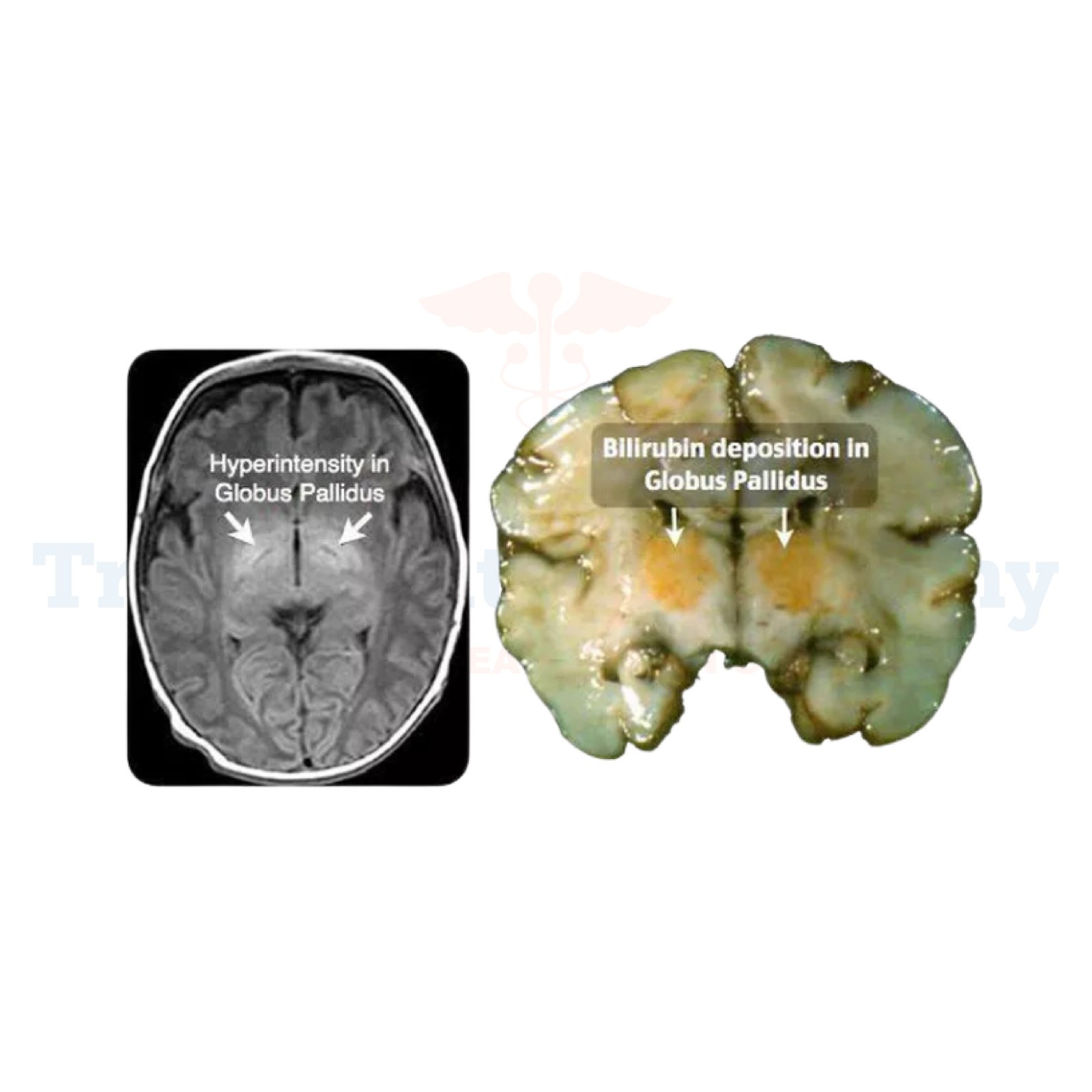What is Kernicterus?
Kernicterus is a rare but serious neurological condition that can affect newborns. It occurs when high levels of bilirubin build up in a baby's blood, leading to potential damage to the brain and nervous system.
Bilirubin is a substance produced when the body breaks down old red blood cells, and normally, it is processed by the liver and excreted from the body.
However, in some cases, especially in newborns, the liver may not be mature enough to handle bilirubin effectively, causing it to accumulate.
Side Effects of Kernicterus
The accumulation of bilirubin in Kernicterus can lead to several neurological symptoms and complications, such as:
- Poor muscle tone (hypotonia): Babies may appear floppy and have difficulty moving.
- High-pitched crying: Babies may cry in a distinctive high-pitched tone.
- Arching of the body (opisthotonus): The baby may arch their back and neck.
- Seizures: These can range from mild to severe and may be recurrent.
- Permanent neurological damage: If left untreated, Kernicterus can lead to lifelong developmental disabilities, hearing loss, and even death in severe cases.
How is Kernicterus Diagnosed?
Diagnosing Kernicterus typically involves a combination of clinical observation and laboratory tests:
- Clinical Assessment: Doctors will evaluate the baby's symptoms, including muscle tone, behavior, and any signs of neurological abnormalities.
- Bilirubin Levels: A blood test will measure the concentration of bilirubin in the baby's blood. High levels may indicate a risk of Kernicterus.
- Brain Imaging: In some cases, imaging studies such as MRI (Magnetic Resonance Imaging) or CT (Computed Tomography) scans may be done to assess any brain damage.
Potential Treatment of Kernicterus
Early detection and prompt treatment are crucial to prevent or minimize the effects of Kernicterus:
- Phototherapy: This involves placing the baby under special lights that help break down bilirubin in the skin so that it can be excreted more easily.
- Exchange Transfusion: In severe cases, where phototherapy is insufficient, a procedure known as exchange transfusion may be performed. This involves replacing the baby's blood with donor blood to rapidly decrease bilirubin levels.
- Medications: In some cases, medications may be given to help lower bilirubin levels or to support the baby's liver function.
- Supportive Care: Babies with Kernicterus may require supportive care to manage symptoms such as seizures or feeding difficulties.
👉 Contact us for further information and receive a complimentary consultation.


.webp)
 (1).webp)

.webp)
 (1).webp)


.webp)
 (1).webp)

.webp)
 (1).webp)
